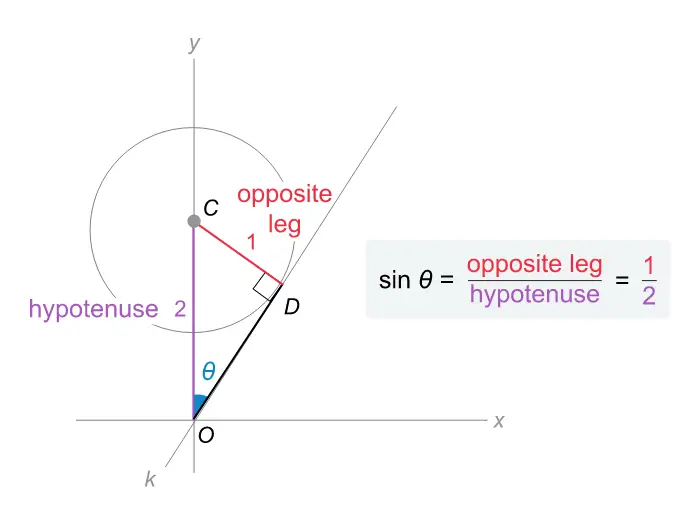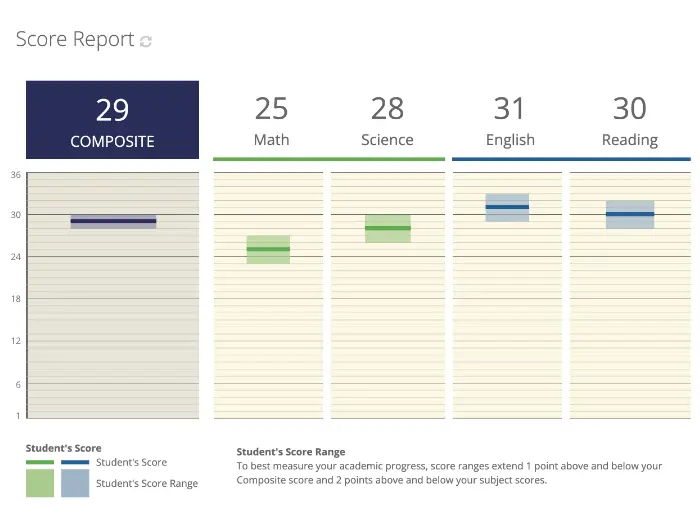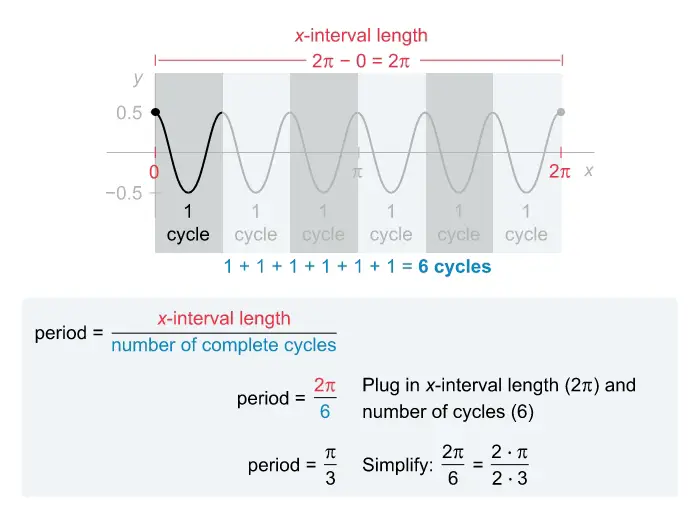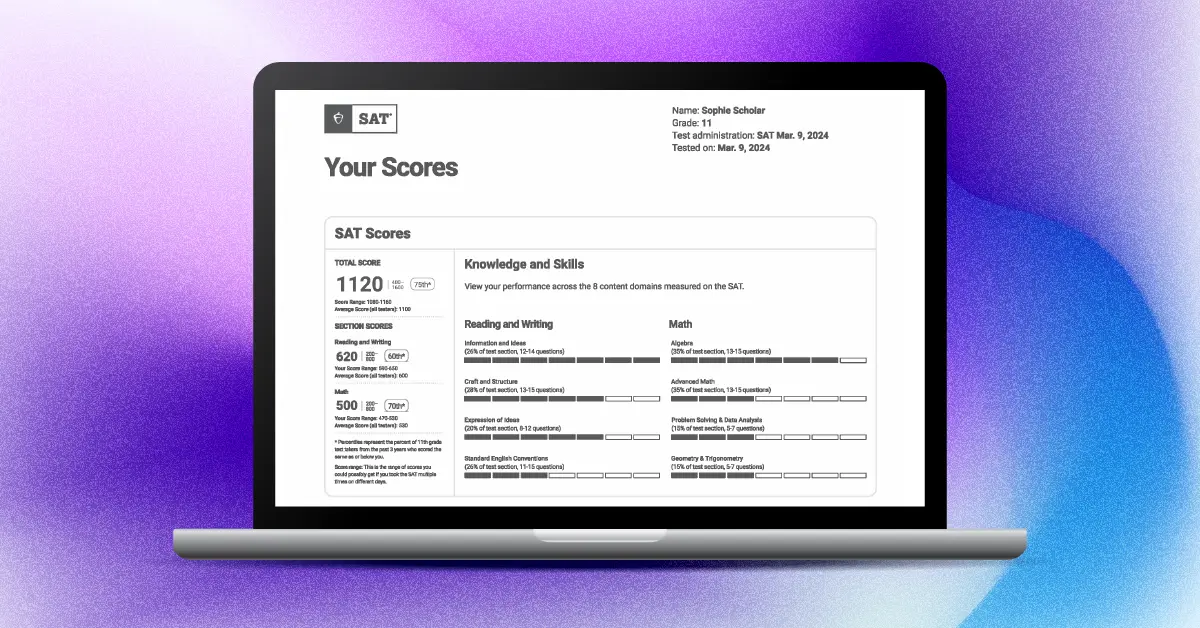When preparing for the ACT®, students often inquire, “What is a good ACT score?” To address this question, let’s delve into some ACT performance data trends:
- An above average score falls within the range of 25-36.
- An average score is in the range of 17-24.
- A below average score is between 1-16.
It is essential to research the ACT performance trends of previously admitted students at your prospective dream schools to help you set your own ACT dream score. In 2022, the average ACT score was 19.8. Keeping this in mind, a score range of 18 to 20 would likely qualify you for college. While the 19.8 score represents the average, the ACT score ranges of admitted students at mid and top tier colleges may be significantly higher.
Here’s a list of 30 colleges that typically expect above-average scores:
| Name of College | Score Range | Name of College | Score Range |
|---|---|---|---|
| Massachusetts Institute of Technology | 35-36 | Washington and Lee University | 32-34 |
| Harvard College | 34-36 | College of William and Mary | 32-34 |
| Duke University | 34-35 | Georgia Institute of Technology | 31-35 |
| Vanderbilt University | 34-35 | University of Michigan | 31-34 |
| Johns Hopkins University | 34-35 | Boston University | 31-34 |
| Columbia University | 34-35 | George Washington University | 30-33 |
| Washington University in St. Louis | 33-35 | Babson College | 30-33 |
| Princeton University | 33-35 | Trinity University | 29-33 |
| Yale University | 33-35 | Rhode Island School of Design | 29-33 |
| Northeastern University | 33-35 | Florida State University | 26-31 |
| Middlebury College | 33-35 | Texas Christian University | 26-31 |
| Amherst College | 33-35 | North Carolina State University | 24-31 |
| Hamilton College | 33-34 | The College of New Jersey | 24-30 |
| University of Notre Dame | 32-35 | Southwestern University | 24-30 |
| Georgetown University | 32-35 | University of Science and Arts of Oklahoma | 19-24 |
* Source
How to Set Your Target ACT Score
By outlining the colleges of your choice, delving into their admission requirements, and determining your personalized target score, you will be equipped with the essential knowledge to craft a focused and effective study plan tailored to your academic ambitions.
-
List the colleges of your choice:
Create a worksheet of your college preferences considering the location, cost, courses, facilities, or reputation. Here’s an example: - Common, Coalition Application or QuestBridge Application
- Supplementary extracurricular material
- High School GPA
- Princeton-specific Questions
- Counsellor & Teacher recommendations
- Graded written paper
- Writing supplement
- Secondary school transcript
- Extra- and co-curricular involvements, talents, and leadership
-
Check admission requirements:
Look for relevant information on the official website of your prospective colleges and fill out your worksheet. -
Determine your target score:
Once your worksheet is ready, you can set your target score. Set a realistic target according to the time you can devote and the score you get on your first practice exam. For example, let’s assume the ACT score range of the most recently admitted students at Princeton University was 33-35. To be on par with the previous entering class, you would need to aim for at least a 33. Scoring below that without other exemplary qualifications may result in you being a less competitive candidate.
| List of Prospective Colleges | ||
|---|---|---|
| College Name | Acceptable ACT Score Range | Admission Requirements |
| Duke University | 34-35 | |
| Princeton University | 33-35 | |
| Amherst College | 33-35 | |
| My Target Score | 35 | |
Note: The above table is just a glimpse of the in-depth admission process and doesn’t display all the admission requirements of the colleges. Please visit the official website of the colleges for complete information.
The next step is to devise a plan for studying. Start your preparations ahead of time, follow a schedule, and use quality study materials to prepare for the exam.
Understand the test format
Familiarize yourself with the test's structure, question types, essential concepts, and scoring system.
Develop a study schedule
Allocate sufficient time to cover all subjects, topics, and concepts. Establish practical targets and create study plans that match your capabilities.
Practice regularly
Practice whenever possible. It’ll make you feel confident on the day of the test. Take practice exams and pinpoint areas where you need to improve.
Manage your time
Simulate the time constraints when you take practice exams. Manage your time effectively to finish all the test sections within the allotted time. If you’re stuck on a question, skip it and return to it later.
Familiarize yourself with the test's structure, question types, essential concepts, and scoring system.
Allocate sufficient time to cover all subjects, topics, and concepts. Establish practical targets and create study plans that match your capabilities.
Practice whenever possible. It’ll make you feel confident on the day of the test. Take practice exams and pinpoint areas where you need to improve.
Simulate the time constraints when you take practice exams. Manage your time effectively to finish all the test sections within the allotted time. If you’re stuck on a question, skip it and return to it later.
If you’re struggling with making a schedule, read our ACT study guide and learn how to maximize your time.
What Is a Good ACT Math Score?
Scoring 23-24 on the ACT Math section puts you in the 73-77th percentile and is considered “good.” Here’s a breakdown of ACT Math scores from excellent to below average:
| Percentile | 99-100 | 73-77 | 53-58 | 25 |
|---|---|---|---|---|
| ACT Math Score |
35-36
(Excellent) |
23-24
(Good) |
18-19
(Average) |
15
(<Average) |
How to improve ACT Math score
Follow these steps to improve your ACT Math score:
-
Learn the formulas:
Understanding the concepts behind the formulas and how they are derived will help you memorize them more easily. -
Know your calculator:
Don’t use a brand-new calculator on the test. Use your practice calculator to avoid getting stuck on unfamiliar features.

What Is a Good ACT English Score?
Scoring 23-24 on the ACT English section puts you in the 73-77th percentile and is considered “good.” Here’s a breakdown of ACT English scores from excellent to below average:
| Percentile | 99-100 | 73-77 | 53-58 | 25 |
|---|---|---|---|---|
| ACT English Score |
35-36
(Excellent) |
23-24
(Good) |
19-20
(Average) |
13-14
(<Average) |
How to improve ACT English scores
Follow these steps to improve ACT English scores:
-
Review grammar rules:
Practice grammar concepts like subject-verb agreement, punctuation, modifiers, idioms, verb tenses, parts of speech, pronoun-antecedent agreement, etc. This will help you identify common grammar errors and improve your sentence structure. -
Analyze your mistakes:
Identify areas where you need improvement. If you’re finding it difficult to understand the grammar rules, try using quality prep resources or a tutor’s help.
What Is a Good ACT Reading Score?
Scoring 25 on the ACT Reading section puts you in the 75th percentile and is considered “good.” Here’s a breakdown of ACT Reading scores from excellent to below average:
| Percentile | 99-100 | 73-77 | 53-58 | 25 |
|---|---|---|---|---|
| ACT Reading Score |
35-36
(Excellent) |
25
(Good) |
20-21
(Average) |
14-15
(<Average) |
How to improve ACT Reading score
Follow these steps to improve your ACT Reading score:
-
Practice Reading:
Reading different fiction and nonfiction genres will improve your reading and comprehension skills. Practice summarizing passages, identifying the central idea, and analyzing the author’s arguments. -
Develop your vocabulary:
Try to learn new words daily. Read widely, use vocabulary-building apps, make flashcards (write down words and their definitions), or study root words (i.e., suffixes and prefixes). This will help you analyze the passages more effectively and also answer questions asking you to interpret the meaning of a word or phrase.
What Is a Good ACT Science Score?
Scoring 23-24 on the ACT Science section puts you in the 72-78th percentile and is considered “good.” Here’s a breakdown of ACT Science scores from excellent to below-average:
| Percentile | 99-100 | 73-77 | 53-58 | 25 |
|---|---|---|---|---|
| ACT Science Score |
35-36
(Excellent) |
23-24
(Good) |
20-21
(Average) |
15-16
(<Average) |
How to improve ACT Science scores
Follow these steps to improve ACT Science scores:
-
Practice reading graphs and charts:
A large part of the test will require you to interpret graphs and charts. Practice these well to learn how to evaluate trends and translate information. Look for charts and graphs in your textbook, online resources, or scientific publications. Take data sets and look for patterns, relationships, and other relevant information. -
Time yourself:
You need to read seven passages and solve 40 questions in 35 minutes. Try spending no more than 30-35 minutes per question in order to spare a few minutes at the end to review your work.
What Is a Good ACT Writing Score?
Scoring 91-96 on the ACT Writing section puts you in the 8-9th percentile and is considered “good.” Here’s a breakdown of ACT Writing scores from excellent to below average:
| Percentile | 99-100 | 73-77 | 53-58 | 25 |
|---|---|---|---|---|
| ACT Writing Score |
11-12
(Excellent) |
8-9 (Good) |
6-7
(Average) |
3-4 (<Average) |
How to improve ACT Writing scores
Follow these steps to improve ACT Writing scores:
-
Plan and organize your essay:
Don’t just start writing as soon as you see the question prompt. Take a few minutes to outline your ideas and decide how to organize your essay. -
Develop the essay with specific examples:
Support your ideas and arguments with examples. This will show that you have a good understanding of the subject matter.

Factors Affecting a Good ACT Score
Some of the most critical factors that can affect your ACT score are:
-
High School Curriculum:
Given that the ACT closely aligns with typical high school curricula, students who get sufficient in-class exposure to the subjects covered on the exam will be well-positioned to excel on the test. -
Studying habits:
Studying consistently, utilizing effective learning methods, getting quality sleep, and building efficient time management skills can all positively impact your score. Make sure to follow a study routine and stay focused. -
Test-taking strategies:
Make a plan for the test day. Guess strategically, manage your time, read the questions carefully, and review your answers. -
Quality preparation:
Start preparing early and often with high quality test prep materials. Maintain a consistent study routine, and make a concerted effort to complete as many practice tests as you can.
Want to understand the importance of a good ACT score? Read our blog on How Your ACT Score Impacts Your College Admissions.
What Happens if You Get a Low/Bad ACT Score?
If you receive a low or unsatisfactory ACT score, it’s essential to remember that it’s not the end of the road. Keep in mind that the question, “what is a bad ACT score?” is subjective and varies based on individual goals and college admissions criteria. However, if you find that your score falls below your expectations or the average for your target colleges, there are several proactive steps you can take to improve your situation:
-
Retaking the Test:
If your initial score doesn’t align with your academic goals or the representative score ranges of previously admitted candidates at your preferred colleges, consider retaking the ACT. Many students take the test multiple times to achieve a better score. -
Test Preparation:
Invest time in comprehensive test preparation. This might involve enrolling in an ACT preparation course, utilizing online resources, or working with a tutor. Practice tests, review materials, and targeted study plans can significantly improve your understanding of the content and boost your scores. -
Analyze Your Performance:
Review your score report to understand your strengths and weaknesses in each section. Identifying specific areas that need improvement allows you to tailor your study plan effectively. Focus on mastering content and strategies to approach different question types. -
Consider Canceling Scores (if applicable):
In some cases, you may have the option to cancel your scores on test day if you feel you didn’t perform well. However, be cautious about canceling scores, as some colleges consider the highest score achieved. Research the policies of your prospective colleges before making a decision. -
Explore Test-Optional Colleges:
Some colleges have adopted test-optional policies, allowing applicants to choose whether to submit standardized test scores. If your ACT scores don’t reflect your abilities accurately, consider applying to institutions that emphasize other aspects of your academic and extracurricular achievements. -
Seek Guidance:
Consult with your high school guidance counselor or college advisor. They can provide valuable insights into your options, offer guidance on retesting strategies, and help you explore alternative pathways to your desired educational goals.
Remember, a single low ACT score does not define your academic potential. Taking proactive steps, seeking support, and strategically approaching the test can lead to significant improvements in subsequent attempts. Use your initial experience as a learning opportunity and a foundation for future success.
How Do You Know If Your ACT Scores Need Improvement?
If you’re curious about how to improve your ACT score, the below pointers will provide actionable steps and valuable guidance. Whether you aim to surpass college benchmarks, align with specific admission criteria, or fulfill personal aspirations, these practical approaches will help enhance your ACT score and propel your journey toward improvement.
-
Benchmark Comparisons:
Compare your scores to the benchmarks set by colleges and universities. If your scores fall below the average of your desired institutions, it’s an indication that improvement may be beneficial. -
Assess College Admission Goals:
Evaluate the admission requirements of the colleges in which you’re interested. If your scores don’t align with those of the previous entering class, it may signal the need for enhancement to increase your competitiveness. -
Evaluate Personal Goals:
Reflect on your personal academic and career goals. If achieving these goals requires a higher ACT score, then it’s evident that improvement is needed to meet your aspirations. -
Investigate Scholarship Requirements:
Research the score requirements of merit-based scholarships. Some financial awards may have specific expectations for standardized test scores.
How can you avoid getting a bad ACT score?
If you’re worried about avoiding getting a bad ACT score, understanding the potential challenges and strategizing to overcome them can significantly enhance your chances of achieving a favorable outcome. In this section, we’ll explore effective approaches and valuable insights to guide you through the process, ensuring you are well-prepared to sidestep what is commonly considered a bad ACT score.
-
Understand the Test Format:
Familiarize yourself with the structure and format of the ACT. Knowing what to expect can help reduce anxiety on test day. -
Take Practice Tests:
Regularly practice with official ACT practice tests. This not only helps you become familiar with the types of questions but also improves your time management skills. -
Identify Weaknesses:
Analyze your practice test results to identify areas where you struggle. Focus on improving those specific skills through targeted study. -
Utilize Available Resources:
Take advantage of reputable ACT prep materials, including official guides, online resources, and practice books. These resources can provide valuable insights and practice opportunities. -
Consider Prep Courses:
Explore ACT prep courses if you feel you need additional guidance. Many reputable organizations offer structured courses with experienced instructors. -
Focus on Time Management:
Develop effective time management strategies for each section. Practice pacing yourself during practice tests to ensure you can complete all questions within the allotted time. -
Review Mistakes:
Understand why you make mistakes on practice tests. Learning from errors helps prevent repeating them on the actual test. -
Improve Reading and Comprehension:
Enhance your reading skills, as they are crucial for success in all sections. Practice reading and comprehending various types of passages to build your proficiency. -
Use the Process of Elimination:
When unsure about an answer, use the process of elimination to increase your chances of selecting the correct option. -
Stay Positive:
Maintain a positive mindset. Confidence can have a significant impact on your test performance.
Conclusion
Ultimately, a good ACT score may boost your chances of admission to your desired college or earning a merit-based scholarship. To achieve this, you must maintain your focus and stay dedicated to your goal. With UWorld’s ACT practice tests, featuring numerous exam-style questions and thorough explanations for every answer choice, you can improve your weaknesses and achieve your target score.

References
- (2023). High GPA, Low ACT: What to Do and Strategies for Success. College Reality Check. Retrieved November 22, 2023, from https://collegerealitycheck.com/high-gpa-low-act/#:~:text=High%20GPA%20and%20Low%20ACT,if%20you%20took%20easy%20classes
- (2022). What To Do If You Get a Low SAT or ACT Score. College Raptor. Retrieved November 22, 2023, from https://www.collegeraptor.com/getting-in/articles/act-sat/what-to-do-if-you-get-a-low-sat-or-act-score/
- (2018). Low ACT Scores? ThoughtCo. Retrieved November 22, 2023, from https://www.thoughtco.com/low-act-scores-788839
- (2020). Got a low ACT score? Here’s what you should do. Study International. Retrieved November 22, 2023 https://www.studyinternational.com/news/latest-act-scores-lowest/
- (2017). What are the ACT® College Readiness Benchmarks? Act.Org. Retrieved November 22, 2023, from https://www.act.org/content/dam/act/unsecured/documents/pdfs/R1670-college-readiness-benchmarks-2017-11.pdf
- (2017). How to Improve Your ACT Reading Score: 8 Expert Tips. PrepScholar. Retrieved from November 23, 2023 https://blog.prepscholar.com/how-to-improve-your-act-reading-score-tips#google_vignette
- (2023). ACT Reading Strategies to Boost Your Score. The Princeton Review. Retrieved November 23, 2023 from https://www.princetonreview.com/college-advice/act-reading-strategies
- Tips to Improve Your ACT Science Score. Analyze Ed. Retrieved November 23, 2023 from https://analyze-ed.com/improve-act-science-score.html
- (2023). Preparing for the ACT Test with Writing. ACT. Retrieved November 23, 2023 from https://www.act.org/content/act/en/products-and-services/the-act/test-preparation/writing-test-prep.html
- (2023). ACT Test Scores: Understanding Your Scores. ACT, Inc. Retrieved December 20, 2023, from https://www.act.org/content/act/en/products-and-services/the-act/scores/understanding-your-scores.html




